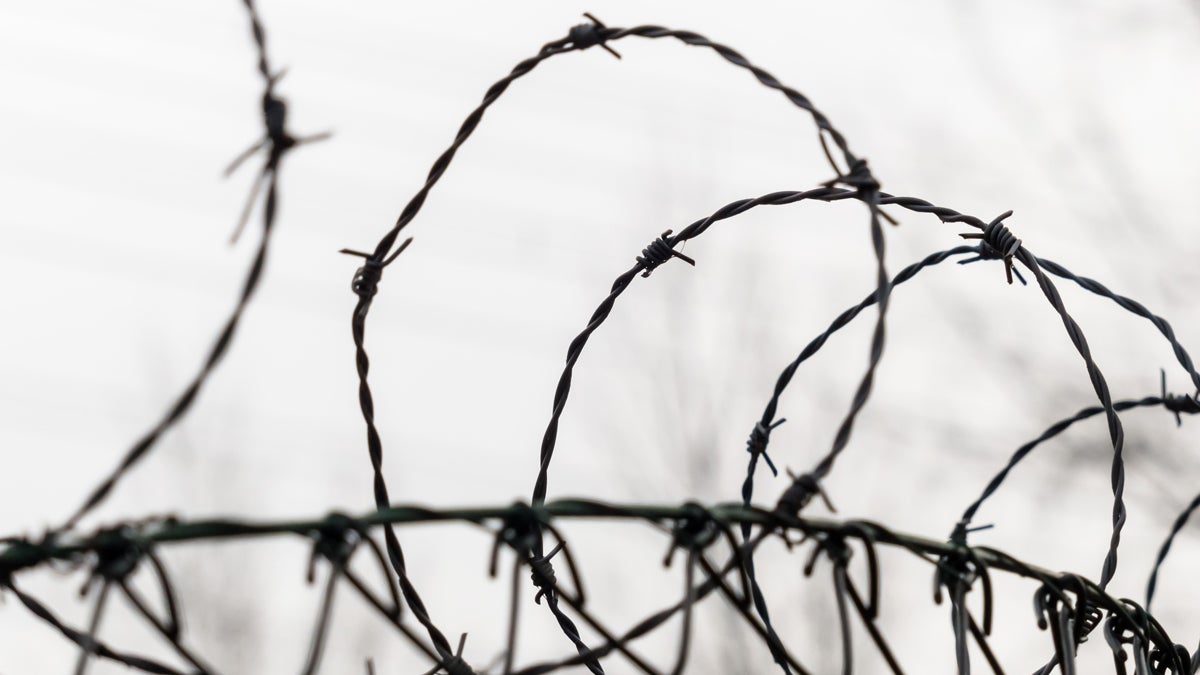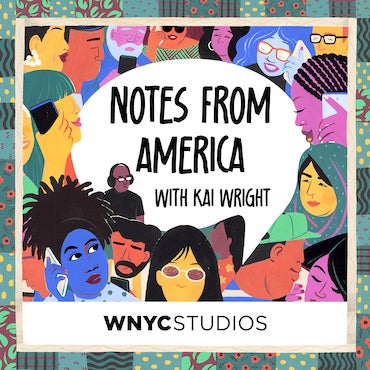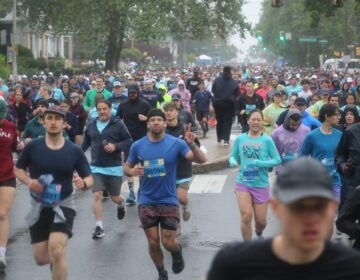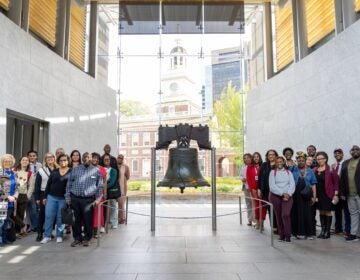The unforgiving responsibility of finding hope for a stranger, peace for oneself

(Barbed wire image courtesy of Shutterstiock.com)
Immigration is a hot topic — and often a hot potato — in our culture, linked to many other potent bugaboos like race, health care, education, and affordable housing. For Ayodele Gansallo, senior staff attorney at the Hebrew Immigrant Aid Society of Pennsylvania (HIAS), it all comes together every time she helps an asylum-seeker through the complex legal obstacle course of U.S. immigration proceedings.
She is wholly absorbed by her work. And as a mom and someone who is deeply involved in many community activities, it’s all part of just being herself.
Work/life balance? She just laughs.
“I don’t really think of myself apart from my work, though I know I should,” she says. “Most of the time I don’t allow myself time for reflection. But my humanity in my work — I don’t pigeonhole it that way. I don’t identify it separately.”
A daily grind for one; life and death for another
An immigration attorney who’s done asylum work with nonprofits both here and in the U.K. for 20 years, Gansallo works with people who need protection from their country of origin — and the sense of urgency can be high.
“Because of what is at stake, there’s a lot of responsibility to care about those who come to see me,” she says. “Clients need to trust me. What’s most important is to acknowledge the responsibility clients give to me.”
I asked her about what that might look like on a daily basis, and she offered some intense examples.
For instance, there’s a couple who have a son born in the United States, who has significant medical issues and is now about 5 or 6 years old. They work hard to seek the appropriate medical care through a tangle of legal and medical networks. Yet the father, who’s been here for about 10 years without legal immigration status, has to decide whether to apply for it so they can remain where their child’s needs can be met.
“So how do I provide the chance for this couple to remain in the U.S. so their child can get the medical assistance he needs from the parents who really love him and are undoubtedly the only ones who can give him the full care and support and daily hope that he deserves?” Gansallo asks.
“It means the parents have to come out of the shadows to apply for immigration relief. It’s a very significant decision that they have to make. I have to assess their case before they can decide what to do, provide evidence to substantiate the needs their child has, and talk to them about where the case is likely to go on the basis of that information.”
Gansallo remembers another example, one that clearly moves her as she speaks about it. A church worker in a country in southern Africa (which she prefers not to name to protect her client) had talked to his parishioners about the war there some time ago. As a result, he was caught between the rebels and government who didn’t agree with his pacifist stance. The government tortured and imprisoned him. Someone eventually helped him escape, and he came to the U.S., where, once again, he was detained. While in detention he received news that his wife and child had been killed by people who were looking for him.
“He became my client,” Gansallo says. “The case was dragging on as it tends to in the world of immigration, and by the time we got the case in front of an immigration judge, the situation in [his home country] had changed significantly. However, we were still able to make the case he needed to stay here rather than returning to a place that had been so inhumane to him and left him with memories from which he can never escape. The judge understood the argument and granted him asylum.
“The government appealed the decision, which was devastating. The client really needed closure so that he could begin to rebuild what was left of his life. It took another year of legal arguments, and thank goodness the final decision was in his favor. I could at least give him this peace of mind — the knowledge that he’s finally safe here.”
Finding the peace she seeks for others
The ability to help someone find that safety and peace in the most radical of human ways is a huge task, and hugely rewarding. In fact, Gansallo’s approach to her work is so integrated that she even sees sharing that feeling with other attorneys as critical.
“It’s important for me to work with the external attorneys who do pro bono cases for HIAS,” she says. “What they all tell me after taking an asylum case is that there’s a different kind of satisfaction they experience compared to their regular caseload. If you really understand you’re affecting the lives of others in this way, you can’t miss what you’re doing. So my connection with pro bono attorneys is just as important to me, since it lets someone else appreciate what it means to affect the life of another human being [in that way].”
It would be ironic if Gansallo were unable to give herself the peace she seeks to give others. The integration of her work and self is complete, but she does have ways of creating boundaries that help keep her work effective.
“When I am working with a client, I am fully present,” she says. “And once it’s completed, I have to completely divorce myself. I’ve done my piece, and I can pass along the file to someone else in the office who handles their more practical day-to-day needs.
“So the only way I can maintain a level of sanity is to have as little contact with that person afterward as possible, since it lets space open up for the next client to move in and to once again allow me to be fully engaged.”
Still, she says, she works nights and weekends — “and all the things I shouldn’t do.”
“I know the formula of work/life balance,” she says, “but I have made a conscious decision that it won’t work for me, because otherwise I couldn’t do my work the way it needs to be done. It’s the way I’ve worked my whole working life.
“I talk to my students [at University of Pennsylvania School of Law’s Transnational Legal Clinic] about the work/life balance all the while knowing it’s not something I choose. But I fully endorse that it’s necessary for each of us to discover what we can take and sustain in the work we do so that it has meaning for us. And that’s what I hope my students discern for themselves.”
She adds, with a smile in her voice, “I fully understand that we can’t do it all, even if we wanted to. But I can’t say I have stopped trying.”
WHYY is your source for fact-based, in-depth journalism and information. As a nonprofit organization, we rely on financial support from readers like you. Please give today.




